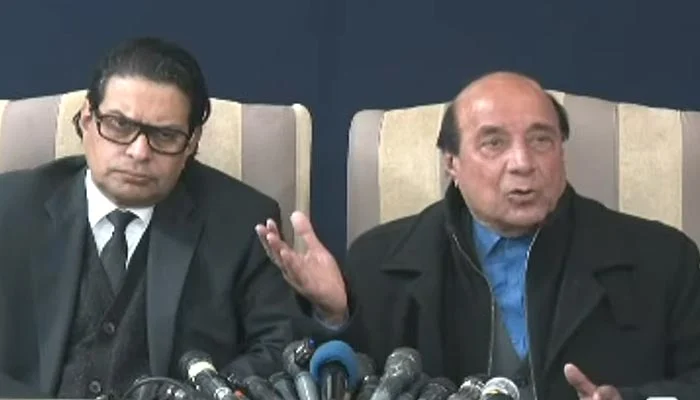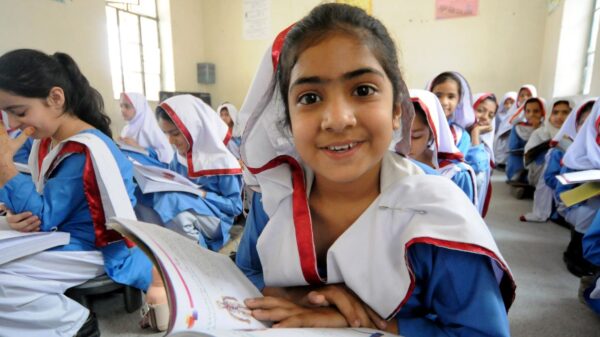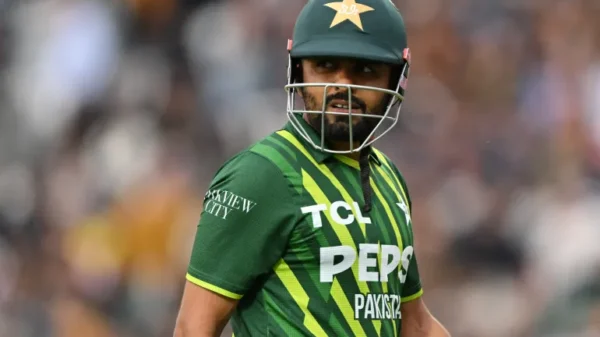The Pakistan Tehreek-e-Insaf (PTI) party strongly condemned the recent sentencing of individuals involved in the May 9 riots by military courts, declaring the verdicts as “illegal and unconstitutional.” Despite this, the opposition party expressed its readiness to engage in dialogue with the government.
PTI leader Salman Akram Raja, during a press conference alongside fellow party member Latif Khosa, stated that while the party rejects the decisions made by the military courts, they are still open to negotiations for the betterment of Pakistan.
This statement comes shortly after military courts sentenced 25 individuals to prison terms ranging from two to ten years for their involvement in the attacks on state institutions that took place following the arrest of PTI founder Imran Khan in May 2023. The military’s media wing confirmed the verdicts, adding that the convicts still have the right to appeal, as guaranteed by law and the Constitution.
The protests erupted after Khan’s arrest in connection with a corruption case, leading to a series of violent incidents and the arrest of numerous PTI supporters.
Over 100 civilians, including PTI workers, are currently facing military trials for their alleged involvement in these disturbances, which included attacks on military installations such as the General Headquarters (GHQ). However, PTI maintains that it had no role in these incidents and has called for an independent judicial inquiry into the events.
The military trials had been paused following a Supreme Court order but were resumed after a constitutional bench directed that pending cases should be concluded.
During the press conference, Raja emphasized that the PTI leadership, including Imran Khan, is prepared for talks, provided they are centered on Pakistan’s welfare.
He also revealed that Khan has set a deadline for initiating these talks, though it could be extended. Raja further stressed that the government has not yet reached out to PTI regarding negotiations.
The PTI leader also warned that if Khan were tried in a military court, it would be a dire situation. He drew comparisons to the fate of former Prime Minister Zulfikar Ali Bhutto, urging the powerful quarters not to repeat the mistakes of history. Raja cautioned that such actions would only harm the country’s reputation on the global stage.
Latif Khosa, another senior PTI leader, echoed Raja’s sentiments, labeling the military court verdicts as unconstitutional. He questioned the legitimacy of military judges presiding over cases involving alleged attacks on military facilities, arguing that military courts are only authorized to take disciplinary action against military personnel, not civilians.
Khosa also criticized the 26th Constitutional Amendment, which he said aimed to weaken the judiciary, and called on the Supreme Court to make a final decision on the matter.
In a separate statement, the Leader of the Opposition in the National Assembly, Omar Ayub, also rejected the military court’s verdict, emphasizing that civilians cannot be tried in military courts under the principles of justice.
He reiterated that the sentences handed down to the PTI detainees were unjust and violated their constitutional rights.
In conclusion, PTI’s stance on the military courts’ verdicts highlights the ongoing tensions between the opposition and the government, with the party expressing its readiness for dialogue while rejecting what it perceives as unconstitutional actions. The situation remains fluid, with both legal and political implications for Pakistan’s future.
I am a dynamic professional, specializing in Peace and Conflict Studies, Conflict Management and Resolution, and International Relations. My expertise is particularly focused on South Asian Conflicts and the intricacies of the Indian Ocean and Asia Pacific Politics. With my skills as a Content Writer, I serve as a bridge between academia and the public, translating complex global issues into accessible narratives. My passion for fostering understanding and cooperation on the national and international stage drives me to make meaningful contributions to peace and global discourse.










